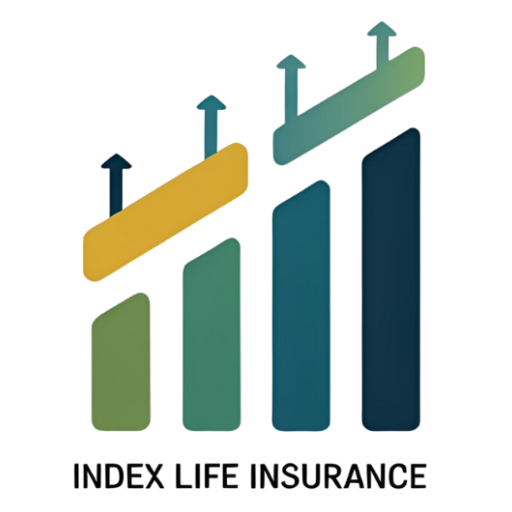Discretionary credit refers to a type of credit extended by lenders based on trust, judgment, or internal policies rather than strict qualification rules. Common in retail or corporate finance, it gives the lender freedom to offer or withhold credit depending on the perceived value or relationship with the borrower.
This concept of discretion — flexibility, conditional access, and trust-based approval — also plays a subtle yet important role in life insurance. While there’s no such thing as “discretionary insurance” in name, products like Indexed Universal Life (IUL) insurance embody the same spirit: policies that provide flexibility, adaptability, and owner-controlled access to benefits.
In this article, we’ll compare discretionary credit to how life insurance — particularly IUL — offers discretionary-like features, empowering policyholders to customize and control their financial protection and wealth-building strategies.
Understanding Discretionary Credit
Discretionary credit isn’t guaranteed. It’s offered by lenders who choose to extend a line of credit or spending limit without rigid, algorithmic approval. It’s common in:
- Retail store cards offering promotions based on loyalty
- Corporate accounts approved based on relationship history
- Private banking lines given to high-net-worth clients without formal applications
What’s notable is the reliance on trust, soft data (like past behavior), and long-term value rather than formalized metrics. Now let’s see how that compares to a well-structured IUL policy.
How IUL Offers “Discretionary” Financial Control
Indexed Universal Life policies provide life insurance coverage and a cash value component that grows based on the performance of a stock index (like the S&P 500). But unlike traditional term insurance or whole life policies, IULs offer:
- Flexible premium payments
- Adjustable death benefits
- Policy loans without credit checks
- Multiple index options and crediting methods
This flexibility gives policyholders the discretion to structure their coverage and accumulation strategy based on personal circumstances — a form of financial trust embedded in the contract.
Discretionary Features in IUL Policies
1. Premium Flexibility
Unlike term insurance with fixed payments, IUL allows you to pay more or less (within limits) based on cash flow. You can:
- Front-load premiums in high-income years
- Reduce or skip premiums if cash value is sufficient
- Use policy loans to pay premiums in leaner years
2. Policy Loans Without Lender Approval
One of the most discretionary features of IUL is the ability to borrow against your policy’s cash value without underwriting, applications, or justification. You can:
- Take out a loan in days, not weeks
- Repay it at your own pace — or not at all (loan amount is deducted from death benefit)
- Use funds for any purpose — from investments to emergencies to tax-free retirement income
This is the insurance equivalent of a discretionary credit line — backed not by your credit score but by your own funded asset.
3. Index Allocation Options
Policyholders can often choose from multiple crediting strategies:
- Annual point-to-point
- Monthly average
- Multi-index blends
You have the discretion to change allocations annually, responding to market shifts or personal risk tolerance — offering strategic control similar to a financial advisor’s discretionary management style.
Case Study: Using IUL as a Personal Credit Reserve
Scenario: Tara, 44, Real Estate Developer
Tara has been building an IUL for 8 years. With over $120,000 in cash value, she leverages her policy during market downturns instead of applying for bank loans. When a project requires a bridge loan, she takes $40,000 from her policy loan feature — no approval, no documentation, and no credit pull. It functions like a discretionary line of credit, but it’s self-funded and tax-advantaged.
Discretionary Credit vs. Discretionary Insurance: Key Differences
| Feature | Discretionary Credit | IUL Policy “Discretion” |
|---|---|---|
| Approval Needed | Yes, even if relaxed | No — cash value determines access |
| Repayment Terms | Fixed or revolving | Flexible or optional |
| Usage Limits | Set by lender | Set by policy’s value |
| Tax Implications | Interest not tax-deductible personally | Loans are tax-free if policy stays in force |
When to Embrace IUL for Financial Flexibility
Using IUL as a discretionary asset makes sense if you:
- Want a source of tax-free liquidity in the future
- Value autonomy over how and when to access funds
- Seek long-term protection + financial flexibility
- Have variable income and prefer flexible premium structures
Unlike traditional credit products, IUL gives you permanent benefits — and the freedom to use them how and when you choose.
Replace Borrowed Trust with Self-Backed Confidence
Discretionary credit depends on external approval — a bank’s trust in your behavior. But with Indexed Universal Life, that discretion is internal. Your policy gives you power over your financial outcomes, without middlemen, applications, or risk of rejection.
If you’ve ever wished for a credit line you could control — one that grew over time, avoided taxes, and provided lifelong protection — you’re not looking for a bank. You’re looking for an IUL.
Smart Tip: Think of your IUL as a private credit vault — funded by you, controlled by you, and available when you need it, no questions asked.

